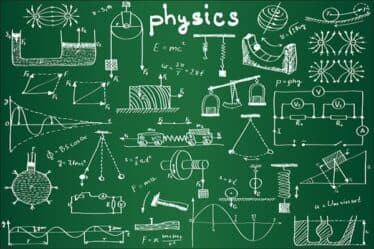IIT Madras launches great major initiatives
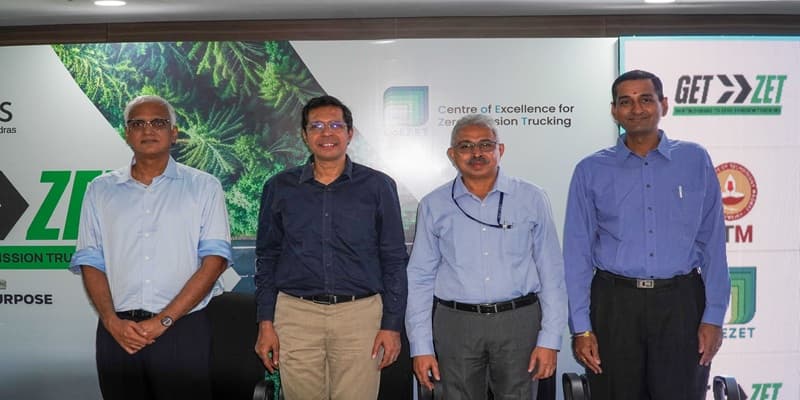
IIT Madras has launched major initiatives towards India achieving its 100% Zero Emission Truck penetration by the year 2050.
The objective is to accelerate adoption of Zero Emission Trucks (ZET) like Electric Trucks in India as despite trucks representing only 5% of the vehicle fleet, they consume nearly 65% of diesel, leading to substantial pollution and fuel consumption costs.

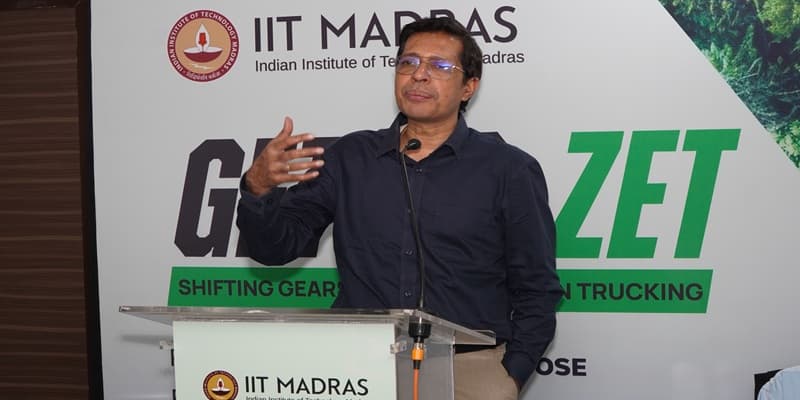
1. Project Driver Rating Application (DRA): An AI-driven mobile app to assess truck driving behaviour on safety and energy efficiency
Ø It will also encourage and inculcate safe and efficient driving behaviour among truck drivers. Safety and energy efficiency are vital to realise benefits and faster adoption of ZETs.
Ø The mobile app will include anticipative alerts designed to inform drivers of inadequate driving behaviour relative to the static context of road infrastructure.

Ø Enrol drivers of diesel trucks, which are operating in long distances of minimum of 4,000 km per month.
2. Project Outreach: Generate awareness about Zero Emission Trucking (ZETs) among the truck drivers and operators
Ø Conducting outreach events to generate awareness about ZETs among end users including drivers, helpers, mechanics, fuel pump operators, body fabricators, and small fleet operators.

Ø Project to cover States that contribute to 80% of the population of Medium and Heavy-Duty Trucks (more than 12T Gross Vehicle Weight – GVW).
Ø The project aims to cover the trucking community directly through physical events at a minimum of 200 locations across South, Central, West, and Eastern States (excluding North Zone States, which were covered during pilot trials) and through digital communications that are apt for the user layer.
Awareness and Acceptance
Prof. V. Kamakoti, Director, IIT Madras, said awareness, acceptance and Adoption – that is the process being taken.
This first step is to make these stakeholders aware of the different aspects of truck electrification – the trends, advantages, challenges and technologies, he said.

The idea is to build a strong relationship based on trust. Once that relationship is in place, we plan to engage with them in order to help them accept the electrification journey – appreciating the benefits that accrue to them as well as the country and world at large, said IIT Madras director.
Prof Kamakoti further said “Finally, we will help them adopt truck electrification with the right tools, training and preparations.”
There are many people who are working with different Stakeholders for Truck Electrification – IIT Madras is engaging with this mostly neglected community that is going to be most critical in the Adoption of e-Trucks, said director of IIT Madras.
Fast growth
India’s trucking industry is on a fast growth trajectory with freight movement making up 70% of road-based transportation.
Such initiatives, launched early and with prolonged engagement, is expected to help India accelerate the Electrification of Trucks, thereby saving import costs of petroleum, improving competitiveness, reducing emissions and increasing driver comfort and well-being, say sources from IIT Madras.
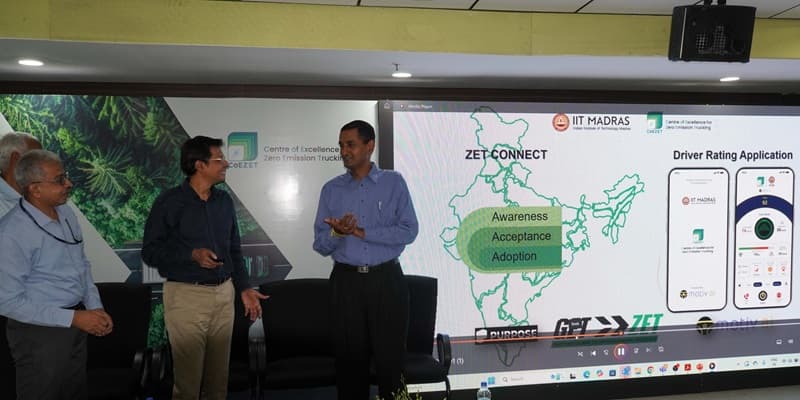
This layer of stakeholders consisting of drivers, cleaners, operators, mechanics, dhabha owners, masseurs, barbers and pump operators, among others, widely called the ‘User Layer’, will be the most critical layer from a psychological acceptance perspective, he said.
Prof Shankar Ram of IIT Madras further said while most of the other Stakeholders like fleets, Government, etc., will be influenced by the main monetary, policy, emission and energy security considerations.
This layer actually feels the direct impact of any change in Trucking and, that too, on a day-to-day base, said Prof Shankar of IIT Madras.
The drivers, especially, will be seeing significant improvements in their personal comfort due to truck electrification- the noise, vibration, heat, fatigue, acceleration and many other criteria will see significant improvements, he said.
But they will also be required to replan their schedules in order to find that extra couple of hours to break journey for charging, he said.
This community needs to understand and accept these changes well in advance, he said.
Key highlights
Key highlights of the new initiatives are:
Ø Content and communication shall be in local languages, or English or Hindi, depending on the local requirement.
Ø Digital communications and updates on ZETs to engage end users continuously. And live streaming of select events at select locations.
Ø Create digital content and activities such as a YouTube channel, YouTube advertisements, testimony videos, a digital quiz, dissemination via WhatsApp groups, etc.
Ø Share insights from end users with organisations such as thinktanks, OEMs, and supporting infrastructures, working towards accelerated adoption of ZETs.
Ø Project duration – 16 to 18 months.
Community
T. K. Ajithkumar, CEO, Centre of Excellence for ZET said they will be working with this community over the next 12 to 18 months through partners.
While the engagement details are conceived and designed by CoEZET, it is implemented through our partners who are skilled in the communication and technology tools required for these engagements.
One of our partners will be doing hyper-local events in the dhabas, truck stops, goods exchanges and Logistics parks, he said.
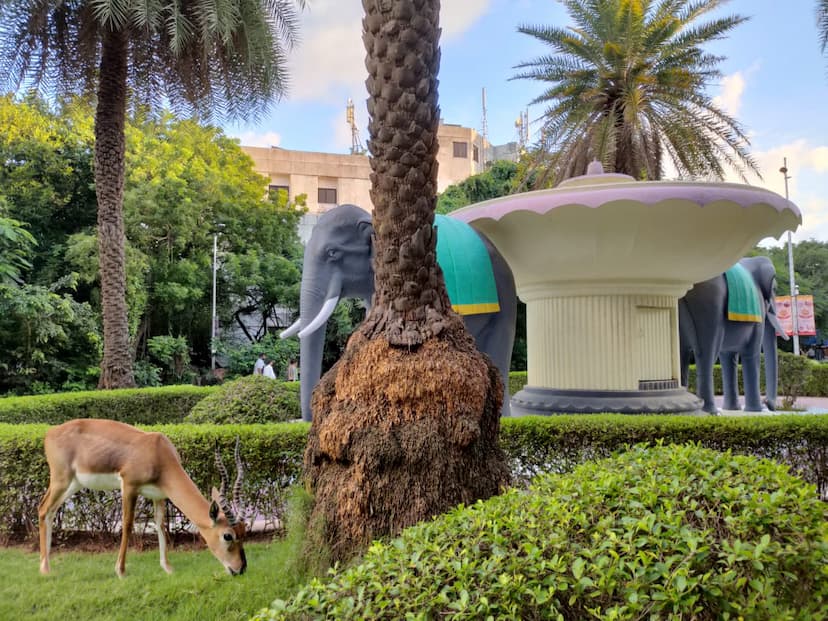
Such initiatives, launched early and with prolonged engagement, is expected to help India accelerate the Electrification of Trucks, thereby saving import costs of petroleum, improve competitiveness, reduce emissions and increase driver comfort and well-being, he said.
S Vishnu Sharmaa now works with collegechalo.com in the news team. His work involves writing articles related to the education sector in India with a keen focus on higher education issues. Journalism has always been a passion for him. He has more than 10 years of enriching experience with various media organizations like Eenadu, Webdunia, News Today, Infodea. He also has a strong interest in writing about defence and railway related issues.




